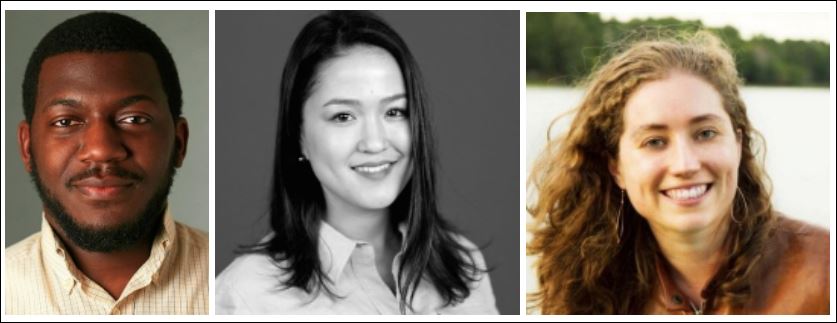Reflecting on the sad, sudden demise of The Atlantic’s much-admired education page.
By Alexander Russo
The news that The Atlantic was laying off 68 people was not a surprise to me.
The Atlantic had begun dismantling its once-prominent education page several months ago, starting with the loss of its editor, the reassignment of its star higher education reporter to another beat, and the unfortunate departure of its much-admired K-12 reporter.
For me, deterioration began then, and became even more obvious in recent weeks when it offered little school-related coverage during the COVID-19 crisis.
The decline was confirmed on Thursday with the layoffs of nearly 20 percent of its staff.
And yet, the mass layoffs are still shocking and sad, illustrating the fragility of the media ecosystem and the loss of talent that can take place seemingly overnight — in the middle of a national crisis when we need high-quality journalism most.
It’s bad enough to observe what’s going on in journalism these days, a slow but steady downward tilt. It’s even more puzzling and, of course, disappointing to see support for education coverage suddenly fall out from underneath it.
The Emerson Collective’s journalism grantees are likely worried about what happens next.
If The Atlantic’s education section can be tossed aside, and the staff can be whittled down so suddenly, then nobody’s safe.
The Atlantic had begun dismantling its once-prominent education page several months ago, starting with the loss of its editor, the reassignment of its star higher education reporter to another beat, and the unfortunate departure of its much-admired K-12 reporter.
Going back decades, The Atlantic has a proud tradition of publishing smart, memorable education stories.
Launched in 2013 under the leadership of Eleanor Barkhorn, the online education page produced a great mix of reported content and analysis by staffers and contributors.
Since then, The Atlantic had one of the strongest magazine education sections in the nation, staffed ably by education editor Rebecca Rosen and the powerhouse reporting duo of Adam Harris and Alia Wong, who had joined the outlet as its education editor for more than three years before moving into a writing-first role.
Harris wrote powerful and important pieces like Will Anyone Save Black Colleges? Wong wrote interesting stories like The Questionable Year of the Teacher Politician.
Wong and Harris weren’t the only people on staff who contributed strong stories. The section published Saahil Desai’s College Sports Help Rich White Students Get Admitted in the fall of 2018, foretelling what would become known as the Varsity Blues scandal six months later.
One of my favorites was Julie Washington’s Quest to Get Schools to Respect African-American English, a re-examination of the controversy over the use of Black English as a teaching tool.
The section published strong work from contributors like Erika Christakis, who penned last year’s important piece, Active-Shooter Drills Are Misguided.
The section also published The Teacher Project’s podcast series, What My Students Taught Me, featuring teachers and former students, and Kristina Rizga’s series featuring veteran teachers nearing retirement.
There were some extremely controversial moments, including George Packer’s essay about extreme liberalism and Brooklyn schools: When the Culture War Comes for the Kids.
And there were some mishaps here and there, including an infamous magazine piece about the CUNY system, which suffered a series of massive corrections.
But overall, this was a well-funded section of journalistic excellence that seemed stable with the funding of Lauren Powell Jobs’ Emerson Collective — for whom education has long been a major issue.
With a combination of in-house talent and outside contributors, the section regularly featured stories that told down-home truths on important yet unusual topics, instead of falling into the testing/charter schools/graduation rates grind of coverage like so many outlets.
Nobody else was publishing education stories like these on such a consistent and high-quality basis.
With a combination of in-house talent and outside contributors, the section regularly featured stories that told down-home truths on important yet unusual topics. Nobody else was publishing education stories like these on such a consistent and high-quality basis.
Things seemed to be looking up with arrival of the Emerson Collective.
But all was not well behind the scenes.
The section was moved into a broader unit called Family, a decision that hardly ever ends well for hardcore education coverage.
The official Twitter handle for the section went dark, last posting in June 2019.
The education editor position once held by Rosen was never filled after her 2019 move to another section, and the pace of new stories slowed to a trickle.
Then Harris was moved over to cover the 2020 campaign. And Wong’s byline disappeared.
Once the COVID-19 crisis kicked into gear, the problem became obvious. The Atlantic was producing top-notch coverage, but its education section was nearly silent.
Wong, Harris, Rosen, and the Emerson Collective’s Peter Lattman declined to comment, referred me to the communications office, or did not respond

Above, left to right: Harris, Wong, and Rosen, all of whom have departed the outlet or no longer primarily work on education issues.
There has been no formal announcement that the education section is being shut down. Stories continue to be posted there, now and then, by staff writers and contributors.
Harris continues to file education stories, even though that’s no longer his full-time job.
For her part, Wong has finally updated her Twitter bio to identify herself as a former Atlantic staffer. Her byline has been appearing here and there.
But it’s sad. Wong and Harris are star education reporters.
This is the news outlet that featured the work of Nikole Hannah-Jones; Amanda Ripley, who authored The Smartest Kids in the World, and Matt (“Why Busing Failed”) Delmont.
The Atlantic’s education section had a good long run. But what’s happened now seems unfortunate and unnecessary.
Related coverage
What’s next for The Atlantic’s education coverage?
How Last Week’s Atlantic CUNY Story Went (So) Wrong
How The Atlantic’s CUNY Story Went (So) Wrong
Lessons from the media’s coverage of the 1996 Ebonics controversy
A Q & A with George Packer, author of that contentious Atlantic magazine essay
ABOUT THE AUTHOR

Alexander Russo
Alexander Russo is founder and editor of The Grade, an award-winning effort to help improve media coverage of education issues. He’s also a Spencer Education Journalism Fellowship winner and a book author. You can reach him at @alexanderrusso.
Visit their website at: https://the-grade.org/













